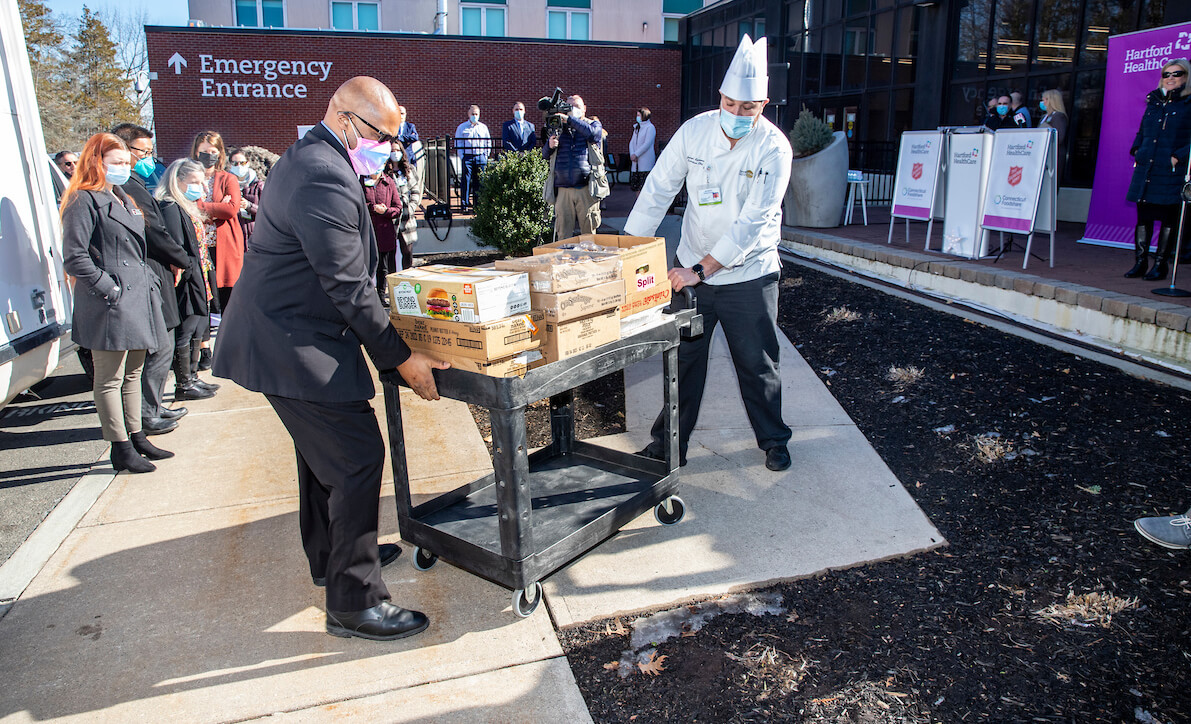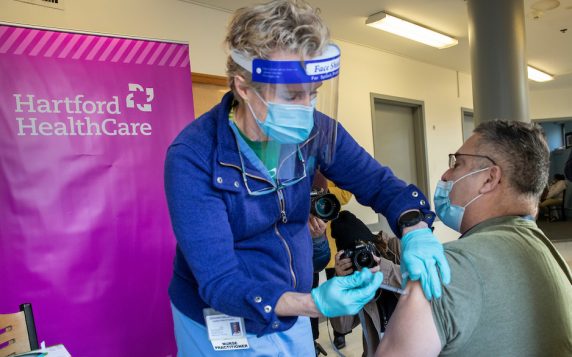When the food services team at The Hospital of Central Connecticut (HOCC) noticed there were days the amount of food ordered exceeded what was eaten by patients and staff, they launched a compost program but eventually thought they could do more.
Whitney Bundy, senior director of guest services for Hartford HealthCare, said the team worked with food services vendor Compass One to explore other options, finding one with CT Foodshare. On Feb. 11, the hospital became the first in the state to launch a project that will donate its unused food to needy people in the community. In this case, donations will go to the Salvation Army men’s shelter less than a mile away.
“The food, which never leaves the kitchen, will help feed the 15 to 30 residents of the shelter,” Bundy said in a press conference at HOCC, noting that food orders sometimes exceed demand.
The pilot – part of Compass One’s Waste Not 2.0 program – is geared toward reducing waste and finding options for unused food. According to Jason Jakubowski, CT Foodshare president and CEO, the donations will address a “significant meal gap” in New Britain, where HOCC is located.
“This is one of the communities where more needs to be done,” he said, adding there are 480,000 food insecure people in Connecticut.
The men staying at the shelter are often chronically homeless and face a variety of barriers to personal success, including healthy nutrition.
“This food,” said shelter resident Ron King, “is a blessing.”
Hartford HealthCare President and CEO Jeff Flaks said he anticipates expanding the program to all of its hospitals statewide in efforts to “bring better nutrition to the community.”
“This initiative demonstrates great organizations coming together to make things better than normal. Our people are challenging the way we’ve always done things. We need to disrupt ourselves in order to improve the health equity in our communities,” Flaks said.
The donated food goes through strict screening before being donated. HOCC is able to take part in this type of partnership due to the Bill Emerson Act, which was signed into law in 1996 and encourages food and grocery donations to nonprofits so they could be distributed to those in need.
“We are extremely proud to be part of this pilot program, which other locations across Hartford HealthCare will also model thanks to the success of HOCC,” said HOCC President Gary Havican. “We understand that caring for our communities also goes outside the confines of our hospitals and we take that responsibility seriously. This partnership is an example of the lives that can be changed through meaningful partnerships that leave a lasting impact on countless people.”


